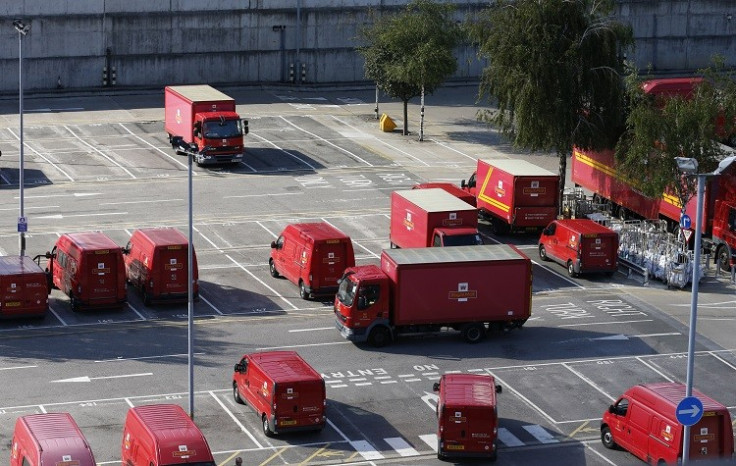Royal Mail Shares Rocket 36% as IPO Delivered

Royal Mail shares leapt by as much as 36% in early trading on their London Stock Exchange debut.
The firm was valued at around £3.3bn by the government's offer price of 330p, but the price opened at 450p amid enormous demand for oversubscribed Royal Mail shares among investors.
This initial trading is on a conditional basis and can only be done through a broker. Full trading of Royal Mail shares on the LSE will not start until 15 October.
Labour's Opposition Business Secretary Chuka Umunna has attacked the government on accusations of undervaluing the Royal Mail, but the minister responsible insisted that taxpayers are well served by the flotation.
"Our priority has always been protection of the consumer through the universal service obligation, good value for money for the taxpayer, and a stable long term ownership structure that will enable Royal Mail to be a successful enterprise and to raise commercial funding to invest," said Vince Cable, business secretary.
"This listing achieves all of these objectives. We have struck the right balance, increasing the proportion of shares going to small investors to ensure they get their fair share and ensuring the employees get a 10% stake in the business.
"It is gratifying that Royal Mail enjoys the confidence of such a strong group of investors. With these institutions, many of whom are responsible for people's pensions and savings, and with UK citizens and our own people backing Royal Mail, we are much better positioned to be the universal service provider for the country."
Cable had previously estimated that there had been around 700,000 applications for Royal Mail shares ahead of the privatisation. Royal Mail staff have been handed 10% of the firm's share capital and the government retains a 37.8% shareholding.
Of the base offer, 67% of shares were offered to institutional investors, while 33% were offered to retail investors.
There was a £750 minimum investment set for retail buyers. The government said 93,000 members of the public who had applied for the minimum amount of shares would receive them in full. Those who applied for more than £10,000 worth would not receive any shares.
Anticipating the high level of demand for the shares, the government set an Over-Allotment Option as a stabilising measure for the 30 days after the IPO. If this option is used, the government's shareholding will be eroded further, to a floor of 30%.
Union Battles
Unions have put a cloud over Royal Mail's IPO, which they say many workers oppose. The results of a ballot by the Communications Workers Union (CWU) on strike action over the privatisation are due shortly.
Royal Mail has cautioned British politicians that it is likely there will be job cuts following its stock floatation.
According to written evidence submitted to the Business Select Committee, Royal Mail said that while it has gone through a "difficult process of change" it hope to keep job losses to a minimum, despite the £3.3bn ($5.3bn, €3.9bn) IPO.
"Change will continue and the company will employ fewer people in the future, whoever owns it," said the Royal Mail.
"The company remains committed to the overarching objective of achieving this without compulsory redundancies."
Despite the written evidence, Royal Mail declined to comment to the media.
© Copyright IBTimes 2025. All rights reserved.






















